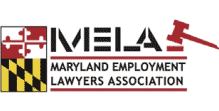Whistleblower protections for federal employees
A host of state and federal laws protect workers from retaliation after they have reported wrongdoing at work. This true for workers in the private sector as well as workers in the government, but the protections for federal employees are somewhat different and they have a separate system under which they can protect their rights.
How do you report retaliation in the private sector?
For employees in the private sector, the procedure for reporting retaliation can depend on the exact laws at issue in the case.
For example, let's say a worker at a manufacturing company lawfully reported unsafe working conditions to the Occupational Safety and Health Administration (OSHA). This angered their employer, who retaliated against them by cutting their hours. This is illegal retaliation.
The worker can then report this retaliation to OSHA, which can investigate. In fact, OSHA investigates retaliation claims involving not just the Occupational Safety and Health Act, but also the Clean Air Act, the Safe Drinking Water Act, the Affordable Care Act, the Consumer Financial Protection Act and many more. Importantly, the deadlines for reporting retaliation depend upon which statute is involved. A worker has 180 days to report a violation under the Affordable Care Act, for example, but just 30 days to report a violation under the Clean Air Act.
Workers may also report retaliation to the Equal Employment Opportunity Commission (EEOC), the Department of Labor and other agencies, depending upon the details of their cases.
For federal employees
For the most part, federal employees are protected by the same whistleblower laws as everyone else. However, the process may be different.
For example, if a federal employee lawfully reports a workplace violation to the EEOC, and then faces retaliation for doing so, they can take their complaint to their agency's internal Equal Employment Opportunity office.
In some cases, employees of the Executive Branch may also report retaliation through the Merit Systems Protection Board and/or the Office of Special Counsel.
As you can see, there are many ways to protect against retaliation, but the process for putting those protections into practice can be complex and confusing. For that and other reasons, it's a good idea to seek out advice from professionals with experience in whistleblower protection.













